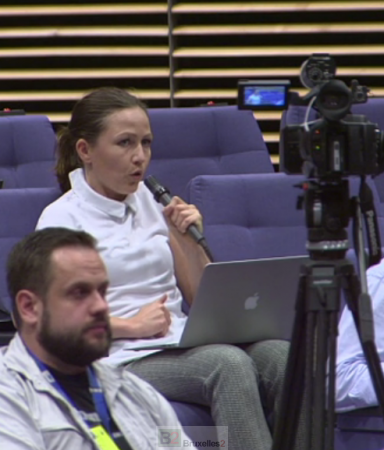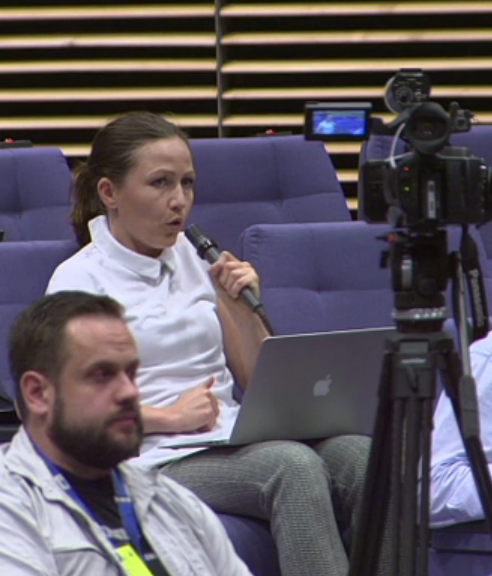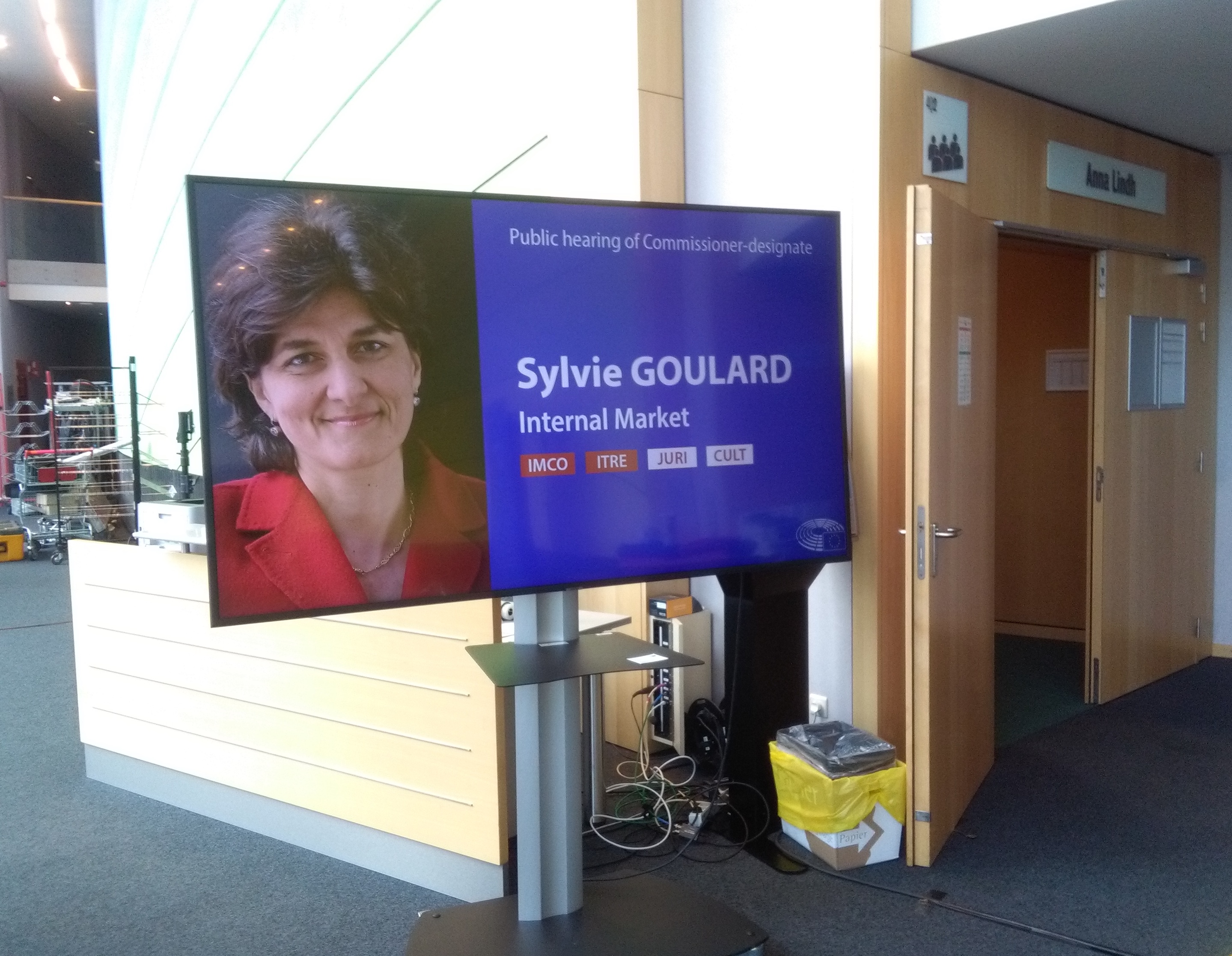The very strange fight of Polish public television (V2)
 (B2) The situation in Poland is turning sour. And journalists who practice their profession are now called upon to align themselves with the yardstick of power. Our colleague from Polish private television (Polsat TV), Dorota Bawołek has just suffered the bitter experience.
(B2) The situation in Poland is turning sour. And journalists who practice their profession are now called upon to align themselves with the yardstick of power. Our colleague from Polish private television (Polsat TV), Dorota Bawołek has just suffered the bitter experience.
The questioning of the independence of the Polish judiciary
It all started last Thursday, during the press briefing of the European Commission, the Polsat journalist asked the Commission for a reaction on the new legislation concerning the judges of the Supreme Court in Poland. Very logical question. The spokesperson's response remains very cautious (1), emphasizing the procedure already underway on the rule of law. Several journalists tried to get an answer. The spokesperson, Alexander Winterstein, did not budge from this line.
Several journalists are not satisfied with the response. So they insist. Dorota Bawołek so try a second attempt, too, “ You are not commenting on this news while the Council of Europe or the European Parliament [have done so]. You seem happier commenting on a country coming out of the EU than a country that's in the EU and maybe, if you don't answer, will want to go that route ". A usual process, during press briefings in the Commission, where journalists have the right to "reply", and make a "tougher" question on the second passage (2).
Public television adds fuel to the fire
The matter could have ended there. But public Polish television has decided to add fuel to the fire. She published an excerpt from the question, describing the questions of our Polish colleague from Bawołek as “provocations”, specifying that the Commission “did not succumb to the bait”. Then a commentator, Dominik Zdort, said that these issues were purely political, that Bawołek tried to manipulate the Commission and that Polsat's professional standards had become "inadmissible". A coverage that resulted in dozens of messages on Twitter calling our journalist colleague "anti-Polish", "neo-Marxist" and other low-level insults.
An attack on the essence of journalism: the right to ask a question
This type of insults is quite common on twitter where, behind the anonymity of social networks, people (even well-bred) let off steam in a rather notable vulgarity. What is more disturbing is the attitude of a media, public, which challenges even the essence of journalism. We can disagree with an article, a point of view, we contradict it, we argue... But contesting the fact that a journalist does his job and asks questions on a topical subject is for the less disturbing
The right, the duty of a journalist
A journalist's right, even his duty, is to ask questions, more or less pointed, in order to obtain an answer. Everyone has their own style. But it is usual in European circles when you don't get an answer on the first try, to be entitled to a second chance. It is even a right, respected (almost scrupulously) by the European authorities and which is not automatically practiced in all European countries. In general, the question is rephrased or deliberately harsher in tone (2). It's "good war". And, in general, the spokespersons, even if they do not shout their joy at this offensive, appreciate it because it also allows them to be more direct, more offensive in turn, to clarify a point (. .. or not). It is quite simply the exercise of democracy and the work of the press that Dorota did and that Polish public television called into question.
Nicolas Gros Verheyde
vice-president of the Association of European Journalists AJE-France
(1) A habit adopted by the European Commission, in the event of an embarrassing question, sometimes to have political time for reflection.
(2) Having often practiced this kind of exercise, I can testify that Dorota's double question was perfectly polite and justified. We have known in the press room of the Commission much more clear-cut or apostrophizing questions.
Chain reactions...
Commission Vice-President Frans Timmermans condemned Twitter this process: "I strongly condemn the threats that Dorota Bawolet received just by doing her job. This is unacceptable ! ".
I strongly condemn the threats @DorotaBawolek received just for doing her job. Unacceptable! A-EU!
— Frans Timmermans (@TimmermansEU) July 17, 2017
The International Press Association (API) protested against this attitude of seeing journalists implicated just because they ask a question. " The right to ask questions in the newsroom is something that is part of our culture of media freedom and has always prevailed in the newsroom. We encourage everyone here and outside to make use of this right and ask the questions they deem necessary. " said Michael Stabenow on behalf of the API. Which resulted in a loud applause and the remark of Schina's Margaritis, the Commission's chief spokesperson: This is one of the press rooms where all accredited journalists have the full right to ask (all) the questions they wish. The Commission and the spokesperson's service will ensure that this right is protected. »
Go further: twitter feed by Dorota Bawolek


